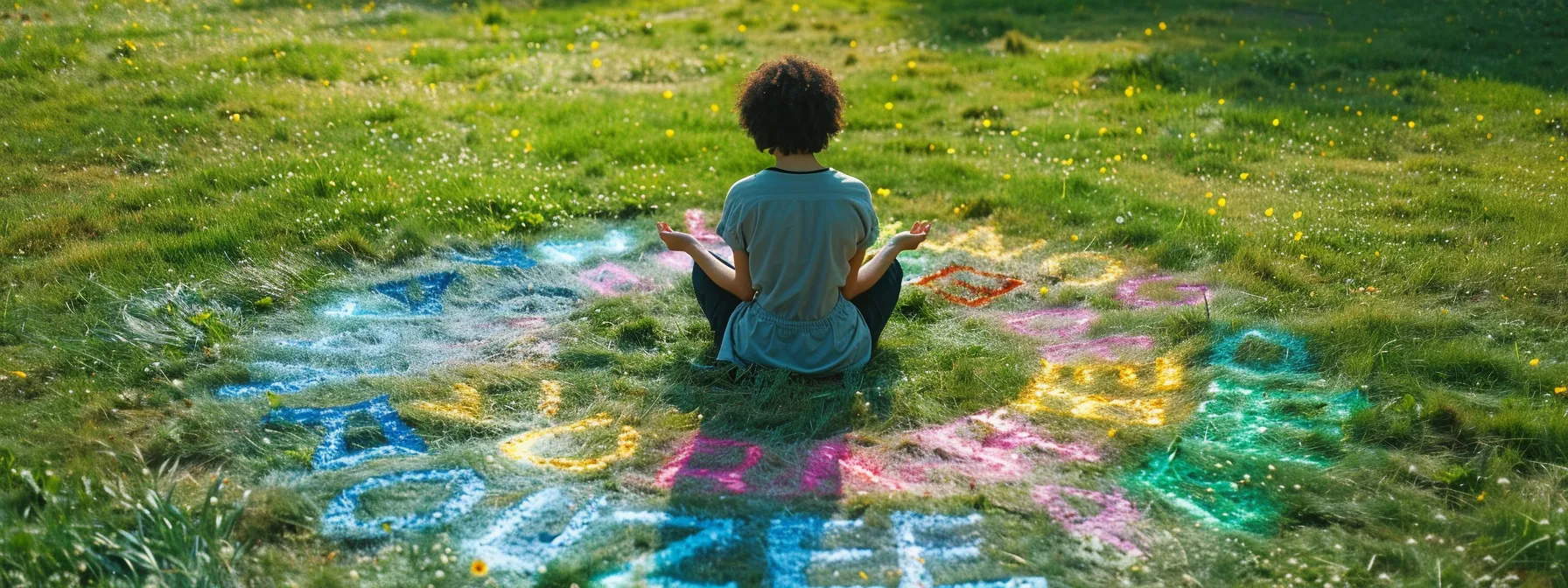Holistic Health
Transform Your Love Life: Mastering Jealousy With PSYCH-K Techniques
Transform Your Love Life: Mastering Jealousy With PSYCH-K Techniques
If you’ve ever felt the gnawing pang of jealousy in your relationship, you’re not alone. Many individuals grapple with feelings rooted in abandonment, often surfacing as a habit shaped by past experiences. Understanding these emotions through the lens of neuroscience can help you unlock deeper insights into your own behavior and relationships. The PSYCH-K programs offer powerful techniques to address these emotions, cultivating a harmonious connection with your partner. Are you ready to embark on a transformative journey to strengthen your love life? Keep reading to explore practical strategies that will help you master jealousy and foster lasting love.
Key Takeaways
- Understanding the roots of jealousy can lead to healthier relationships
- Utilizing PSYCH-K techniques fosters open communication and emotional clarity
- Self-love lays the foundation for overcoming jealousy and enhancing relationship dynamics
- Daily gratitude and reflection strengthen emotional connections and trust between partners
- Empathy and understanding are essential for nurturing deep connections in a relationship
Unpacking the Basics of PSYCH-K for Relationship Harmony

When you experience jealousy in your relationships, it often stems from deep-seated subconscious beliefs that shape your perception of reality. These beliefs can be influenced by your temperament, past experiences, and the feeling of guilt that arises from comparing yourself to others. Understanding how these factors play a role in your emotional responses is crucial for personal growth and relationship harmony. Psych-K Programs provides principles and techniques designed to identify and transform limiting beliefs, empowering you to communicate more positively. By addressing the underlying risks associated with jealousy, you can create a healthier dynamic with your partner, fostering a space for open dialogue and connection.
Understanding the Role of Subconscious Beliefs in Jealousy
Your consciousness often plays a significant role in how jealousy manifests in your relationships. These sentiments can arise from the pain of perceived inadequacies or the psychological burden of comparing yourself to others, much like accruing debt that weighs you down. By understanding these subconscious triggers, you can address the roots of jealousy, much like appreciating the nuanced layers of classical music, allowing you to move toward a healthier relational dynamic.
Introduction to PSYCH-K Principles and Techniques
PSYCH-K offers an innovative approach to addressing emotional challenges, blending insights from clinical psychology and cognitive behavioral therapy. By understanding how panic and anger can root deeply in your subconscious, you gain the tools to reshape your thinking patterns. This transformation fosters a more profound sense of trust and connection, essential for building stable and loving relationships.
How PSYCH-K Fosters Positive Communication
Incorporating PSYCH-K techniques into your interactions helps create a rhythm of positive communication. By fostering empathy and understanding within your conversations, you assume a leadership role that values your partner’s feelings. This concept not only reduces misunderstandings but also invites open dialogue, strengthening your connection.
Transforming how you communicate promotes healthier exchanges in your relationship. By focusing on building empathy, you learn to navigate difficult conversations with grace and a sense of shared responsibility. This commitment to positive communication solidifies trust and enables both partners to express themselves freely, enhancing overall relationship satisfaction:
As you deepen your understanding of PSYCH-K and its transformative potential for relationships, you may feel a stirring desire to explore your inner world. Get ready to embark on a revealing journey, where overcoming jealousy begins with shifting your mindset and embracing self-discovery.
The Journey to Overcoming Jealousy Starts Within

To truly conquer jealousy and elevate your love life, you must first delve deep into the personal triggers and beliefs that fuel these feelings. This often involves exploring the shame and frustration that arise within the context of your marriage, revealing underlying truths that you may not have previously acknowledged. By leveraging PSYCH-K techniques, you have the opportunity to reshape these negative beliefs, turning the tide in favor of positive emotions. Cultivating self-love and establishing trust not only reinforces your resilience against jealousy but also serves as the cornerstone of healing in your relationships. Many therapists recommend this introspective process to solidify emotional stability, paving the way for a healthier partnership anchored in understanding and mutual respect.
Identifying Personal Triggers and Beliefs About Jealousy
To effectively address jealousy, you must first identify your personal triggers and underlying beliefs. Insights from a professor in cultural psychology suggest that societal norms often influence our perceptions of relationships, leading to heightened jealousy due to unrealistic expectations. As your heart rate rises in moments of insecurity, take a step back to analyze how past experiences, such as the fear of divorce, shape your emotional responses and create limiting beliefs that hinder your ability to connect openly with your partner.
Using PSYCH-K to Transform Negative Beliefs
Using PSYCH-K to transform negative beliefs empowers you to reshape your perception of jealousy, turning feelings of grief into opportunities for personal growth. As you identify and release limiting beliefs rooted in your past experiences, you allow yourself the license to embrace healthier behaviors that enhance your relationships. In this process, you tap into the perspective of a caregiver—both for yourself and your partner—nurturing a connection rooted in understanding and mutual respect.
Cultivating Self-Love and Trust as the Cornerstone of Healing
Embracing self-love is integral to your journey of overcoming jealousy, as it lays the groundwork for acceptance and understanding in your relationships. By recognizing your worth and allowing yourself a bit of grace, you prioritize your emotional well-being, which directly influences your interactions with others. Engaging with a mental health professional can provide valuable insights, as shared in countless interviews, highlighting the pivotal role self-love and trust play in fostering healthier connections.
Harnessing your inner power is just the beginning. Get ready to explore practical PSYCH-K exercises that will help you conquer jealousy and transform your mindset.
Practical PSYCH-K Exercises to Combat Jealousy

Taking a proactive approach to managing jealousy requires a commitment to emotional stability and self-awareness. Balancing your mind aligns with the principles of effective pedagogy, providing a foundation for enduring change. Through practical PSYCH-K exercises, you can harness visualization techniques that reinforce feelings of security in your relationships, helping to dissolve any lingering resentment. Pair this with the creation of positive affirmations that strengthen your self-assurance and foster internal courage. By consciously engaging in these therapeutic practices, you empower yourself to dismantle jealousy, paving the way for a healthier and more fulfilling love life.
Balancing the Mind for Emotional Stability
Balancing your mind for emotional stability involves examining your beliefs about relationships and recognizing how fear can distort your attitude. Engaging in psychotherapy rooted in principles found in Christianity may guide you to confront these fears directly, enabling you to challenge limiting beliefs. This process of introspection and realignment not only cultivates a stronger sense of self but also fosters healthier interactions with your partner.
Visualization Techniques to Reinforce Security in Relationships
Visualization techniques can serve as powerful tools for reinforcing security in your relationships, providing you with much-needed relief from feelings of jealousy and insecurity. By picturing yourself in moments of trust and connection with your partner, you cultivate a sense of motivation that counters negative emotions. Engaging with a health professional or a supervisor in this process can enhance your understanding of these techniques and ensure you are effectively addressing any underlying issues, such as past substance abuse that may have shaped your current perceptions.
Creating Positive Affirmations for Self-Assurance
Creating positive affirmations requires your attention and creativity to effectively reshape your mindset. By developing affirmations that resonate with your self-worth and strengthen your belief in healthy relationships, you cultivate the skill to combat jealousy. These empowering statements serve as daily reminders of your value, enabling you to approach your relationship with renewed confidence and openness.
Transforming jealousy into understanding opens the door to a deeper connection. Let’s explore how PSYCH-K can strengthen your relationship bond and foster lasting love.
Strengthen Your Relationship Bond Through PSYCH-K

Creating a deep connection in your relationship requires an intentional focus on empathy and understanding, which acts as a safeguard against feelings of failure and contempt. Research into relationship dynamics underscores the importance of mutual respect and appreciation as vital elements for any partnership. By adopting practical PSYCH-K techniques, you can learn to navigate your partner’s moods and cultivate an environment that fosters open dialogue. Emphasizing these principles will allow you to build a robust foundation of trust, enriching the bond you share and enhancing your overall emotional resilience together.
Techniques for Increasing Empathy and Understanding
Increasing empathy and understanding within your relationship begins with acknowledging the influence of your childhood experiences and your role as a parent. By reflecting on how your upbringing shaped your perceptions, you can gain valuable knowledge that aids in connecting with your partner’s feelings, even those rooted in sadness. Recognize the hierarchical dynamics of your relationship and cultivate a space where both partners feel heard and valued.
Exercises to Enhance Mutual Respect and Appreciation
Engaging in exercises that promote mutual respect and appreciation can significantly enhance your love life by nurturing the desire for connection and understanding. As you practice open dialogues with your partner, allow pride to take a backseat to your shared mental health, fostering an environment where both feel valued and heard. Prioritizing these exchanges before sleep can create a calming routine that strengthens your bond, setting a positive tone for your relationship while nurturing a healthy mind.
Building a Foundation of Trust With Your Partner
Building a foundation of trust with your partner requires a genuine understanding of both your emotions and theirs. Recognizing the pressure that feelings of envy and stress can exert on your relationship helps you create a supportive environment where open communication thrives. Consulting with a therapist can also provide valuable insights, equipping you with tools to navigate these complex emotions effectively.
Strengthening your relationship bond opens the door to deeper connections. When challenges arise, PSYCH-K provides the tools for effective conflict resolution, guiding you and your partner toward harmony.
Navigating Challenges: PSYCH-K for Conflict Resolution

As you encounter challenges stemming from jealousy in your relationship, utilizing effective PSYCH-K techniques can serve as invaluable tools for addressing these conflicts. You will learn strategies that promote transparent and compassionate conversation, allowing both partners to express their feelings without fear of escalation. By focusing on mining deeper issues within the dynamic, you can foster a supportive environment conducive to growth and healing. Inspired by the work of Sigmund Freud, you will uncover underlying emotional triggers that may mirror tendencies often associated with personality disorders, empowering you to approach disputes with a newfound understanding and resilience.
Tools for Addressing Jealousy-Induced Conflicts
As you confront jealousy-induced conflicts, utilize PSYCH-K to address the underlying triggers and beliefs influencing your emotions. These tools guide you to examine how your memory shapes your reactions, reflecting aspects of your personality that affect your relationships. By harnessing the universe‘s potential for growth, you strengthen your cognitive development and cultivate healthier dynamics with your partner.
- Identify the root causes of jealousy by exploring personal memories that evoke insecurity.
- Utilize appropriate PSYCH-K techniques to reshape limiting beliefs linked to jealousy.
- Engage in open communication that fosters understanding and promotes emotional clarity.
- Reflect on your personality traits that may contribute to jealousy, facilitating self-awareness.
- Embrace the universe‘s lessons to enhance personal growth and relationship harmony.
Strategies for Transparent and Compassionate Communication
To forge a stronger connection with your husband, focus on cultivating sympathy during conversations. Acknowledging each other’s perspectives alleviates emotional fatigue that often accompanies misunderstandings, enhancing the overall romance in your relationship. Through this practice, you reshape your cognition, fostering a dynamic that encourages transparency and compassion in every interaction.
Fostering a Supportive Environment for Growth and Healing
Creating a supportive environment for healing begins with acknowledgment of past experiences that may influence your present emotions. Reflecting on your childhood, particularly any instances of abuse, can unveil deep-seated feelings stemming from your mother‘s behavior or effects during middle school years. Understanding how these experiences interact with your current emotional state allows for transformative conversations and growth.
To effectively support each other’s emotional journeys, consider the following steps:
- Recognize the impact of past experiences, such as abuse, on emotional responses.
- Encourage honest discussions about feelings related to family dynamics, including your relationship with your mother.
- Practice empathy by viewing situations from your partner’s perspective, particularly during tough emotional moments.
- Be open to exploring the effects of medication on your or your partner’s emotional stability.
- Create a safe space where both of you feel comfortable expressing fears and vulnerabilities.
Conflict resolution sets the stage for a profound transformation. By addressing jealousy head-on, you can cultivate lasting love and connection in your relationships.
Sustaining Love and Connection After Overcoming Jealousy

To maintain a healthy, jealousy-free relationship, daily habits play a pivotal role. Integrating practices such as gratitude and meditation into your routine fosters a sense of connection and contentment. As you become more attuned to your feelings and those of your partner, applying concepts from attachment theory helps reinforce the emotional safety and security within the relationship. Insights drawn from psychoanalysis can guide you in recognizing patterns and triggers, enabling you to cope effectively with underlying emotions that may surface. Engaging with PSYCH-K techniques regularly ensures that the progress you’ve made remains intact, continuously strengthening the bond you share.
Daily Habits to Maintain Jealousy-Free Relationships
Daily habits are crucial for maintaining jealousy-free relationships, as they help cultivate an environment of trust and understanding. Incorporating practices that boost your confidence can address underlying insecurities that might stem from addiction to negative thought patterns. A scientist would agree that consistency in nurturing your emotional well-being is a key reason why relationships thrive in a supportive atmosphere.
- Practice daily gratitude to reinforce appreciation for your partner.
- Engage in open conversations to share feelings and concerns.
- Allocate time for self-care activities that foster individual growth.
- Set aside moments to reconnect through shared interests or activities.
- Reflect on conflict resolution strategies to handle disagreements constructively.
The Role of Gratitude in Sustaining Transformation
Practicing gratitude serves as a powerful anchor in your relationship, helping you maintain a positive mindset even in challenging moments. By regularly acknowledging and appreciating the qualities you love in your partner, you foster an environment that nurtures connection and minimizes the resurgence of jealousy. This simple yet profound practice reinforces the progress you’ve made, promoting emotional stability and deepening your bond over time.
Continuously Strengthening Your Bond Through PSYCH-K Practices
To continuously strengthen your bond, integrate PSYCH-K practices into your daily routine. These exercises not only help reinforce trust but also keep your emotional connection vibrant and resilient against challenges. Engage in regular reflection sessions, where both of you can share your thoughts about your relationship‘s progress and set intentions for growth.
Incorporating gratitude and appreciation into your interactions fosters a culture of positivity in which both partners thrive. You can create mutual affirmations that reflect the commitment to supporting each other through life’s ups and downs. This proactive approach solidifies the foundation of your relationship and ensures that both partners feel valued.
Consider these key PSYCH-K techniques to enrich your partnership:



